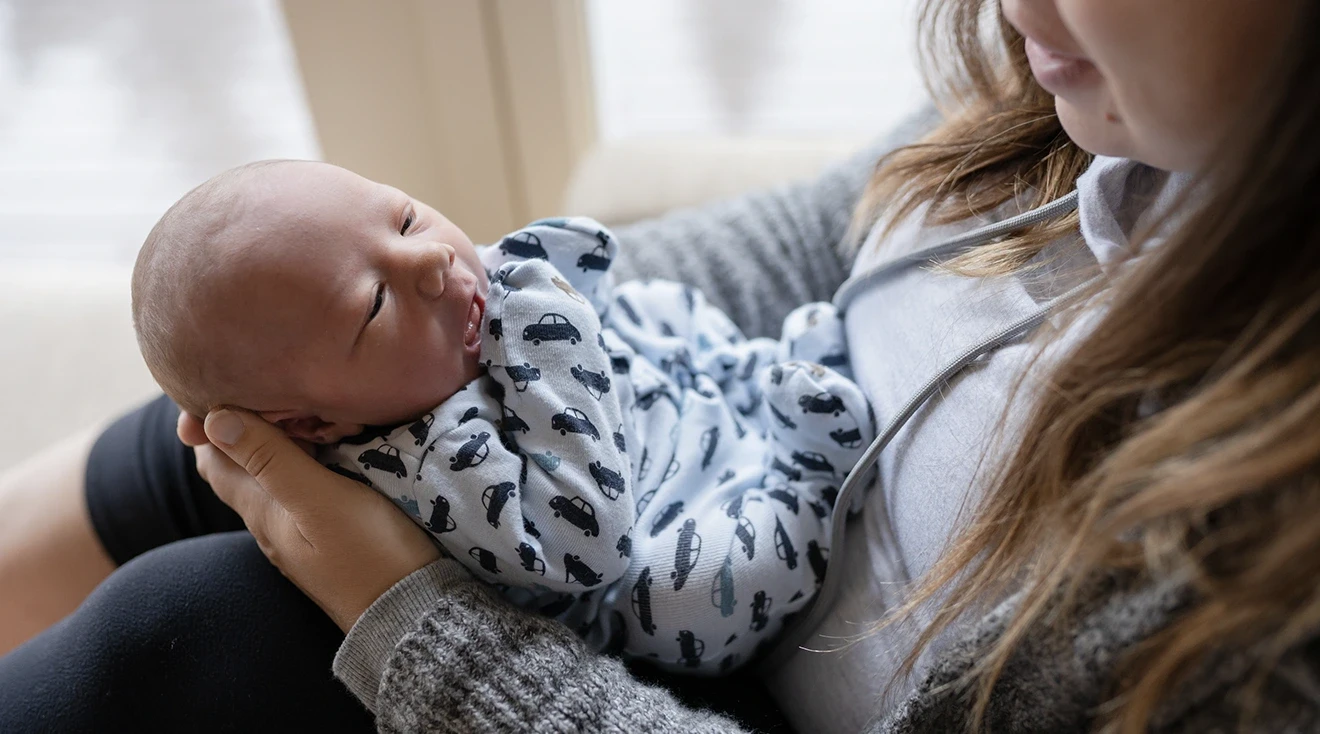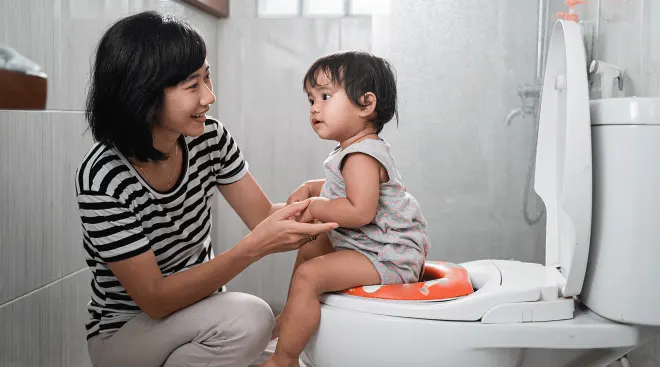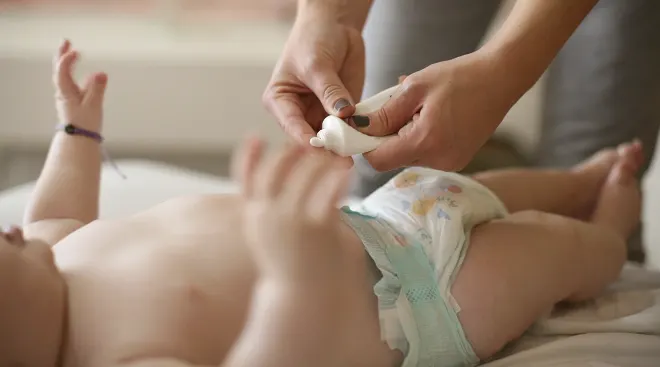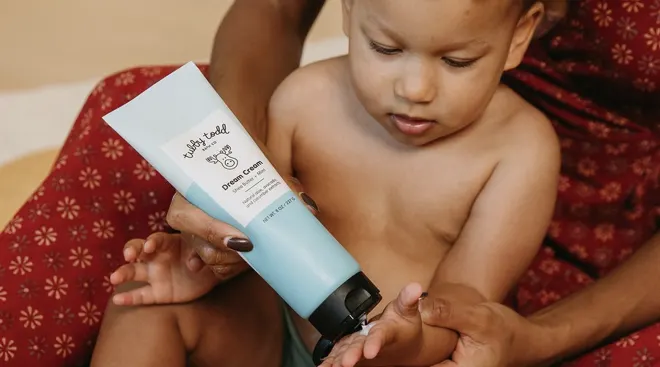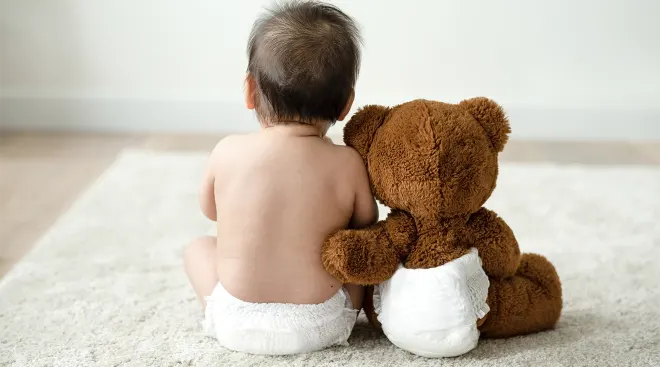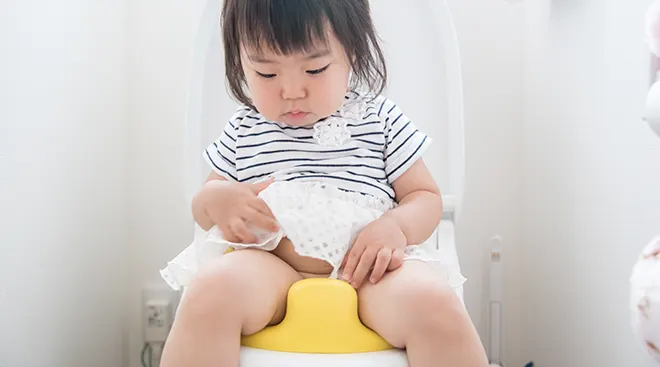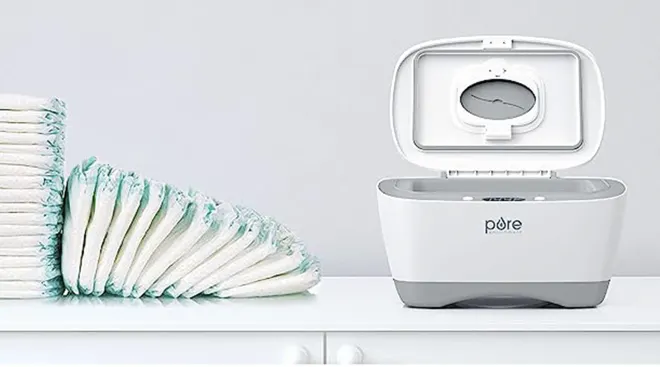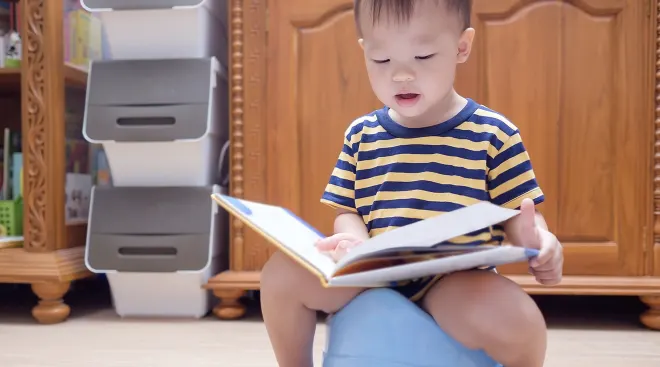What to Know About Using Gripe Water for Colic and Tummy Troubles
It’s normal for babies to deal with gas and stomach issues, but that doesn’t make it any easier on them—or you. When your little one is uncomfortable, you want to find relief for them, and fast. Many parents will reach for gripe water to help—but what is gripe water, exactly, and how does it work? Here’s what you need to know about using gripe water for babies.
Gripe water is a liquid solution that’s designed to help with tummy troubles in infants, says Danelle Fisher, MD, FAAP, a pediatrician and vice chair of pediatrics at Providence Saint John’s Health Center in Los Angeles, California. To administer, you can feed gripe water directly into baby’s mouth using the included dropper or syringe.
Gripe water ingredients vary by brand, but the most common in the US are water and sugar, plus sodium bicarbonate and a botanical mix, such as dill, fennel and ginger, says Patricia Garcia, MD, a pediatrician at Connecticut Children’s Medical Center.
So how does gripe water work? “It’s believed the mixture of sodium bicarbonate with various herbs ultimately settles the stomach and allows for more comfort during a time when a newborn’s digestive system is still immature,” says Ashanti Woods, MD, a pediatrician at Mercy Medical Center in Baltimore, Maryland.
Garcia agrees: “We know that sugar water is soothing to babies and can help with pain relief. Since sugar is a main ingredient in gripe water, the theory is that the sugar helps soothe pain,” she says. “Sodium bicarbonate (baking soda) is found in some antacids to treat indigestion (for example, Alka Seltzer). …Historically, herbs like ginger, dill and fennel have been used to treat indigestion in many cultures.”
You’ve gotten the lowdown on how gripe water works—but what issues does it work well for? Gripe water for newborns and babies is thought to help relieve stomach discomfort, make it easier for babies to pass gas, possibly battle constipation and encourage bowel movements and even potentially soothe colic (or excessive crying), Woods says. Some brands also claim their product will help with hiccups, teething and reflux.
Each brand has a different formulation and different dosage, so it’s important to read the label. Some can be given as early as 2 weeks old, but others require that a baby be at least one month old, Woods says.
Now for the real question: Does gripe water work? To be honest, it’s hard to say. Gripe water hasn’t been extensively researched, but studies that have analyzed it haven’t found much benefit to using it. “There is no evidence to show that gripe water reduces colic,” Garcia says. One study published in the Journal of Clinical & Diagnostic Research had 335 moms answer questions about their gripe water usage and found that it didn’t seem to prevent colic.
There is a “possible” link between gripe water and calming babies’ tummy troubles, Fisher says, “but it’s not a strong association.” Still, some people swear by it. “Many parents report significant improvement in symptoms after using gripe water,” Woods says.
Gripe water is considered a dietary supplement, and that means it doesn’t require approval from the Food and Drug Administration (FDA) to be sold in the US. However, the FDA sets regulations on which ingredients can and can’t be in gripe water for babies, which manufacturers are expected to comply with. If the FDA discovers that a company is not in compliance, the agency will take action against them. This is why you should only buy gripe water for babies that’s made in the US.
Given that gripe water isn’t FDA-regulated, it’s hard to say that every bottle on store shelves is 100 percent safe. “There have been reports of issues with gripe water being unsafe,” Garcia says, pointing out that one form of gripe water was recalled in early 2019 because a particular ingredient didn’t dissolve properly and posed a choking hazard.
But gripe water for newborns and babies continues to be a popular product. In general, formulations that are alcohol-free and sucrose-free are thought to be safe, Woods says. Those that contain charcoal, however, could cause constipation, he says.
Does gripe water cause any side effects?
Gripe water side effects are not common, but in rare circumstances babies under one month may experience vomiting, Fisher says. You should also watch for any possible indications of an allergy to gripe water for babies, including diarrhea, hives and itchy skin. If you notice any of these symptoms after giving baby gripe water, call your pediatrician. Of course, any sign of anaphylaxis, such as swelling of the lips or tongue and difficulty swallowing or breathing, warrants immediate medical attention.
Generally speaking, you should avoid giving baby large quantities of any medicine, including gripe water. “While there are very few commonly reported side effects, infants can get used to a sweet taste and may temporarily reject breastmilk or formula,” Woods cautions. Before trying any gripe water for your infant, it’s a good idea to consult baby’s pediatrician.
Unfortunately, baby can’t verbalize what plagues them during bouts of discomfort—if their belly hurts or they’re experiencing gas pains, you’re left guessing. It can be difficult for parents to distinguish normal cries of hunger from those of distress, but process of elimination can help your detective work. Eventually, you might decide that it’s time to try gripe water. However, if you’re not quite ready to go that route (or if baby has an allergy), there are some gripe water alternatives to consider. Here are a few ways to soothe baby and potentially alleviate tummy troubles without turning to gripe water for babies.
• Bicycle baby’s legs. Garcia suggests laying baby on their back and gently pumping their legs to help expel trapped gas and mollify pesky tummy pains.
• Offer gentle compression. Applying some light pressure to baby’s belly can help work out gas bubbles and provide comfort. Try holding baby tummy-down with your arm supporting their abdomen, or lay baby tummy-down across your knees and rub their back. Similarly, you can lay baby down on their back and gently massage their belly in a circular motion.
• Try a new bottle. It’s possible that your bottle could be the source of discomfort. When baby gulps milk, they can also swallow air, which can lead to gas bubbles. (This is also why it’s important to take frequent breaks for burping.) A bottle with a vent or valve system can cut down on excessive air consumption. Also if baby seems to be chugging too quickly, Garcia recommends trying a nipple with a slower flow.
• Change up baby’s formula. If the problem is pervasive, talk to your pediatrician about changing baby’s formula; as the Cleveland Clinic explains, a milk protein intolerance could be contributing to their discomfort, and switching to a dairy-free formula may help.
• Check baby’s diet. Breastfeeding? You might consider altering your diet to see if baby is bothered by something you regularly eat. Big on broccoli? Cruciferous vegetables are notorious for causing gas (for you and baby). Just remember to use process of elimination when weeding out potential culprits so you can find the offending foods while maintaining a healthy, balanced diet.
• Move around. When all else fails, get moving. Baby grew accustomed to constant swaying in your uterus—it lulled them to sleep in those confined quarters they enjoyed for nine+ months. To this end, baby may like being rocked in a glider, bassinet or swing, or in your arms. You can also try putting baby in a carrier and walking around the block or pacing the house. (Bonus: you’ll get your steps in!)
• Swaddle up. A good, tight swaddling job can help baby feel snug and secure like they’re back in the womb. You can layer in some additional newborn relaxation techniques, too: put on a white noise machine, offer a pacifier and limit bright lights and stimulation, according to the Cleveland Clinic. The big, bad world can be overwhelming for a tiny new person, but a few creature comforts can keep them calm and quiet.
• Give gas drops a whirl. Some parents also try simethicone gas drops as an alternative to gripe water for babies. According to the Mayo Clinic, this over-the-counter medication works to break down gas bubbles and is generally considered safe. Of course, always consult your child’s pediatrician before giving your little one any medication, and monitor baby for any adverse reactions.
If you’ve had the chat with your pediatrician and are interested in trying gripe water for baby, read the instructions carefully before offering it to your child, so you know exactly how much to give. Take a minute to also scan the ingredients, in case of an adverse reaction, and avoid formulas containing charcoal, sucrose or alcohol. Again, only purchase gripe water for babies made in the United States.
Here are a few options to check out:
Little Remedies gripe water
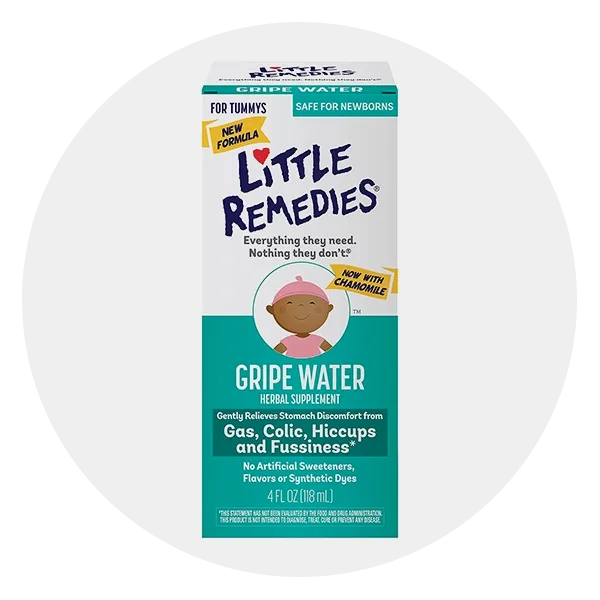
- Formula includes ginger and fennel to aid digestion
- Can be used when baby is two-weeks-old+
- Shake well before use
- Babies may not like the flavor
Billed as “everything they need. Nothing they don’t,” Little Remedies gripe water for newborns is designed to relieve stomach discomfort from gas, colic and hiccups. It contains water, agave, ginger, potassium sorbate, citric acid and xanthan gum.
Mommy’s Bliss gripe water

- Made with high-quality, 100-percent vegan ingredients
- Free of eight top allergens
- Shake well before use
- Sediment at the bottom of the bottle is normal
This gripe water for newborns 2 weeks and older is free of dyes, alcohol and parabens, and is said to help soothe nausea and discomfort caused by gas, hiccups or colic. It contains vegetable glycerin, citrus bioflavonoid extract, citric acid, sodium bicarbonate, fennel and potassium sorbate.
Wellements organic nighttime gripe water

- Made with chamomile to support more peaceful rests
- Free from gluten, dairy, soy and parabens
- For bedtime use
Free from alcohol and preservatives, this gripe water for babies one month and up promises to help promote “peaceful sleep.” It’s preservative-free and consists of water, agave nectar, lemon juice, glycerin and sodium bicarbonate.
Colic Calm Plus homeopathic gripe water

- Features eight all-natural ingredients to soothe baby’s stomach
- Shake well before use
- May make baby drowsy
Colic Calm’s gripe water for infants offers a professional-strength remedy for gas, colic, reflux and upset stomach. It contains 12 refreshing, natural ingredients, including chamomile, peppermint and lemon balm. Better yet, this baby gripe water is free of gluten, soy, dairy and animal products, making it a perfect solution for sensitive tummies. Plus, it can even be used to treat hiccups!
As a caregiver, you can feel powerless seeing baby in discomfort. While the scientific proof is lacking, anecdotal evidence from parents suggests that gripe water might work to ease stomach pain and perhaps even help calm colic. Want to give gripe water for babies a try? Now you can feel informed in your decision-making. Less bellyaching and fewer gripes—that’s the goal.
Please note: The Bump and the materials and information it contains are not intended to, and do not constitute, medical or other health advice or diagnosis and should not be used as such. You should always consult with a qualified physician or health professional about your specific circumstances.
Plus, more from the Bump:
Danelle Fisher, MD, FAAP, is a pediatrician and vice chair of pediatrics at Providence Saint John’s Health Center in Los Angeles, California. She earned her medical degree at the Albert Einstein College of Medicine of Yeshiva University.
Patricia Garcia, MD, MPH, is a pediatrician at Connecticut Children’s Medical Center and an assistant professor of pediatrics at the University of Connecticut School of Medicine, where she also served as chief resident. She received her medical degree at Rutgers University in New Jersey.
Ashanti Woods, MD, is a pediatrician at Mercy Family Care Physicians in Baltimore, Maryland. He received his medical degree from Howard University College of Medicine in Washington D.C.
US Food & Drug Administration, Facts about Dietary Supplements, May 2023
US Food & Drug Administration, Kingston Pharma, LLC Issues Voluntary Recall of All Lots of “DG™ Baby Gripe Water Due to Undissolved Ingredient, Citrus Flavonoid, February 2019
Mayo Clinic, Anaphylaxis, October 2021
Cleveland Clinic, Infant With Serious Tummy Troubles? Understanding Milk Protein Allergy and Intolerance, January 2019
Cleveland Clinic, Colic, June 2023
Mayo Clinic, Mayo Clinic Q and A: Gas Drops for Fussiness, July 2016
Navigate forward to interact with the calendar and select a date. Press the question mark key to get the keyboard shortcuts for changing dates.
































